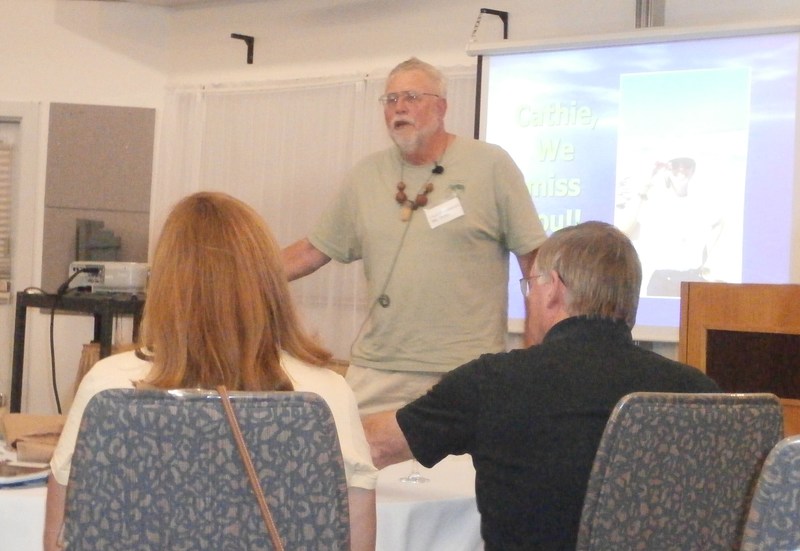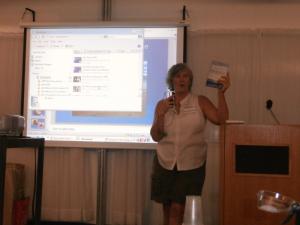Beachcombers from across the nation washed up once again at the Virden Center in Lewes for the fifth annual International Beachcombers Conference Oct. 4-7.
Casual beachcombers and more scientifically-minded folk including planetary geologists and experts in everything from sea glass to sea beans to water-borne disease gathered for a weekend of collecting, sharing and learning at the University of Delaware campus.
"Beachcombing is truly a portal for all ages into science and history and well-being," said organizer Deacon “Dr. Beachcomb” Ritterbush. "It has opened up whole new vistas.”
By examining and researching artifacts brought to shore by rivers and seas, beachcombers are like field researchers in geology and oceanography, intimately attuned to global conditions, Ritterbush said, by the debris they find ashore.
The relaxed atmosphere was evident on the first evening as those in attendance arrived from New England, the West Coast, the Southeast and the Mid-Atlantic region. They introduced themselves over wine and cheese, including one devoted beachcomber from Staten Island, N.Y., who joked she steps over the bodies on her way to pick up shells.
Beachcombers were offered a selection of field trips over the weekend to surrounding Delaware beach areas that Ritterbush christened with names such as Sea Glass Heaven, Coin Beach and Beachcomber’s Delight.
When beachcombers were not out visiting nearby beaches or listening to lectures and films, workshops were held at the Virden Center as part of the weekend of what the organizer calls extreme learning.
Thursday’s keynote speaker, flotsam expert Dr. Curt Ebbesmeyer, gave a rousing speech about flotsam, or sea debris, from the March 2011 tsunami in Japan. He said his research indicates interesting items will begin to be washed up in the North Atlantic next month.
Ebbesmeyer predicted 24,000 pounds of debris from Japan will make its way through the Arctic Ocean and begin to wash up in the North Atlantic by November.
“There are going to be millions of objects washing up,” he said. “If you know any kids who want a science fair project this is high science.”
For more information on the 2012 International Beachcombing Conference visit www.beachcombingconference.com; to learn more about Deacon Ritterbush’s beachcombing efforts, go to www.drbeachcomb.com.

















































